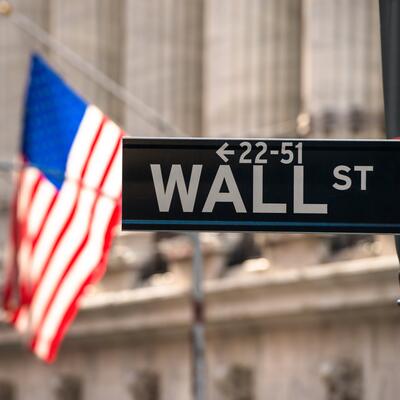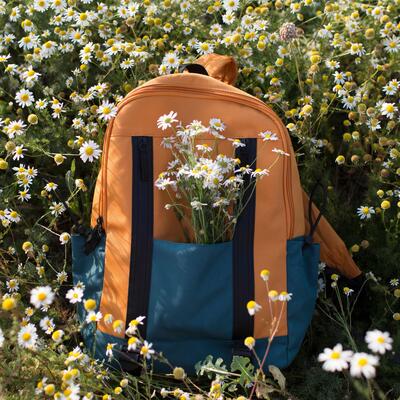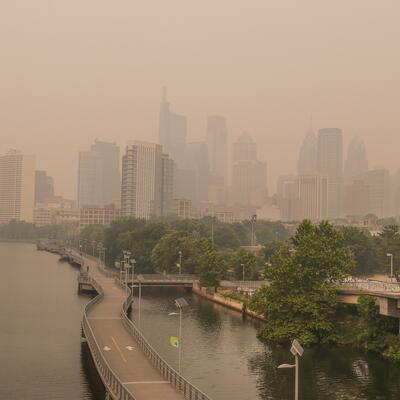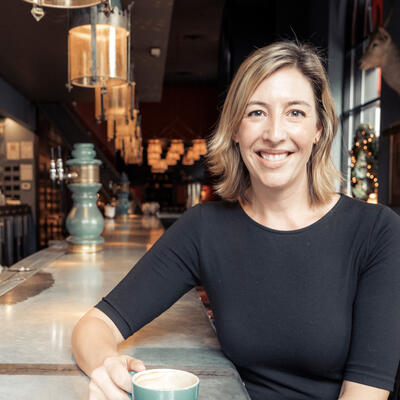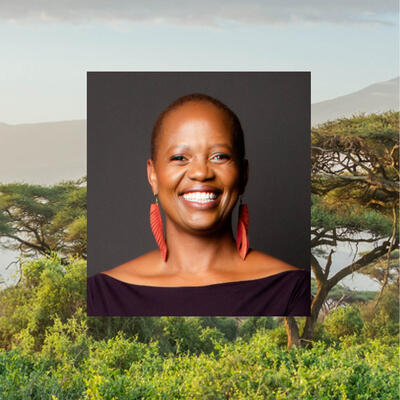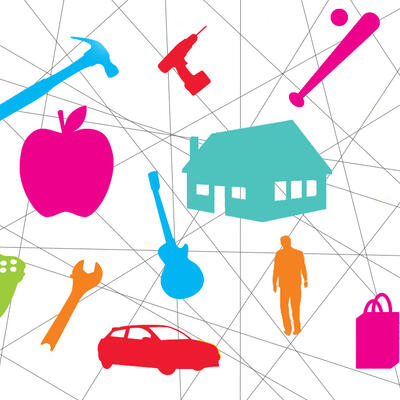
Sharing Economy
Guests
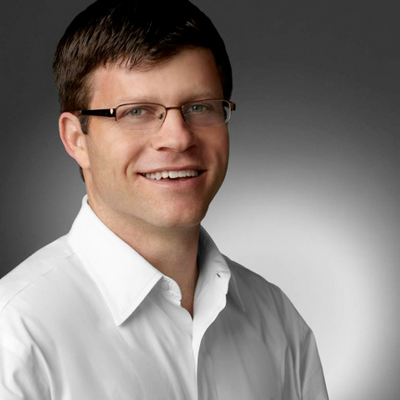
Andy Ruben
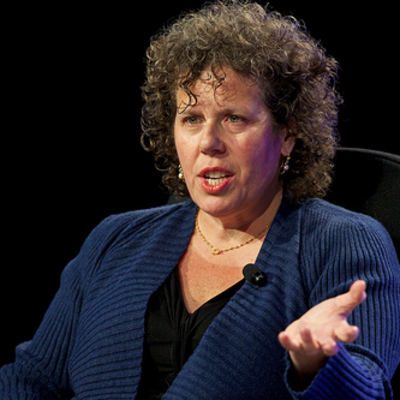
Lisa Gansky
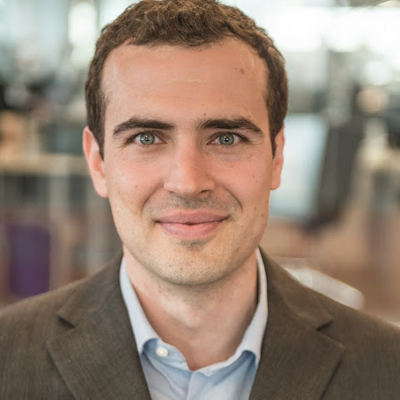
Billy Parish
Summary
“The distribution centers of the future are our closets and garages,” says Andy Ruben, co-founder of sharing start-up Yerdle. Entrepreneurs like Ruben are tapping into social media circles as a way to connect members to a wealth of sharing options. “Data, in many ways, is the gateway drug to the sharing economy,” says Lisa Gansky, Author of “The Mesh”. Other entrepreneurs like Billy Parish, Co-Founder and President of Solar Mosaic, are “unlocking the ability of individuals to participate in the investment process.” Crowdfunding seems to be the next wave of the sharing economy with opportunities ranging from peer-to-peer investment and Solar Mosaic’s own solar investment projects. A conversation on the exciting possibilities of a growing sharing economy.
Full Transcript
Greg Dalton: Welcome to Climate One, a conversation about America's energy, economy, and environment. To understand any of them, you have to understand them all. I'm Greg Dalton.
Our consumer economy is so wedded to purchasing products and owning them that it's hard to imagine any other way of satisfying our needs and desires. When consumers buy less stuff, the economy suffers. Now entrepreneurs in Silicon Valley and around the country are creating new technologies and companies enabling people to share or rent, not buy. The sharing economy is hot and hundreds, of startups are sprouting up for items that are expensive to own and used infrequently; cars, designer gowns, power tools, fancy cooking utensils, you name it. These internet-enabled services are even aimed at changing the way people invests in how companies pull capital.
Over the next hour, we’ll discuss the creativity and disruption of the sharing economy with our live our audience here at the Commonwealth Club in San Francisco. We’re pleased to have with us, three people deeply involved in this new form of capitalism. Lisa Gansky is author of The Mesh: Why the Future of Business is Sharing. Andy Ruben is Co-Founder of Yerdle and former VP of Global e-Commerce Strategy at Walmart. And Billy Parish, is Founder and President of Solar Mosaic, a crowd-funding company here in the Bay Area. Please welcome them to Climate One.
[Applause]
Greg Dalton: Thank you all for coming. Lisa Gansky, you recently Tweeted that ownership is “oh, so last century.” What does that mean?
Lisa Gansky: Well, my feeling and the work that we've been, I guess, all working on is that last century we spent a lot, especially the second half of last century, buying a lot of stuff. And I think the more people that I speak to around the world, really, especially in the developed world, in the accidental world, we’re suffering from some form of a stuff hangover. We have far more things than we actually use as a global community.
And so the Tweet was really that there's -- last century we didn’t have the technology to, for example, track things that we can, right now, track so that you would rent a building or you would rent a floor of a building, things were sort of bigger chunks, bigger chunks of time and bigger things themselves. So a floor of a building as opposed to the ability to tap into “I want that conference room for an hour because I'm flying through Madrid.” And because of the mobile phones that probably many of you have, I have at least one, it's kind of our remote control from moving around the world so we can find each other and things much easier. And in many ways, the technology censors allowing us to find things, and these mobile devices allowing us to find each other have really taken the friction out of sharing.
So last century those things weren’t in place and it was quite difficult to share. I have friends of mine that, for example, from Switzerland, in fact the people who started Zipcar got inspired by what was happening in Europe which was basically a big blackboard that had keys and names, and you had to go and erase your name. When you think about that, you say, “Well, was car sharing going to scale?” No but the technology really freeze that up -- freeze us up and freeze up the tools and the assets.
Greg Dalton: And so we’ll just have you define a little bit the sharing economy, then we’ll get Andy and Billy in here.
So the sharing economy is what? How do you define that term and the scope of it right now?
Lisa Gansky: I'll tell you the way I think about it. I think about it as we’re moving from a world in which ownership was the real one option, to a world in which access to goods, services and talent will triumph over ownership, that's the fundamental. So that we’re able to at least -- it doesn’t mean that, really, ownership -- that we won't own thing. I certainly still own things and expect I always will but it's more that we have the option of also accessing experiences or services or talents or assets, tools, buildings, vacation homes, when we want it, and we just pay for what we use.
And so the business models, because of the technology, the business models are plentiful, much more interesting, and we have much more granularity so that we can really choose exactly what we want when we want it and pay for what the value, the true value.
Greg Dalton: Andy Ruben, you worked for Walmart, one of the top -- largest companies in the world. I believe their logo is something like buy more, live better. So they're in the business of making it lots of stuff. So how did you come to sharing from working at such a large retailer?
Andy Ruben: Sure. I mean, one of the genesis or the start for Yerdle was the obviousness of what Lisa just mentioned. We have -- we’re living in a world -- one of the stuff that amazes me is there are 62 Lego bricks for every man, woman and child on the planet. We’re living in a world of such abundance of things that we own. And the technology we are just talking about, it says -- when my daughter goes to play soccer in the fall, my first thought right now is I would shin guards from a retailer when there are dozens of girls who are one year older who are done with the shin guards, and then off 500 away, the distribution center.
The distribution centers of the future are our closets and garages. And so our ability through this service that we launched at Yerdle allows you to join Yerdle, be connected with your friends, and have access to that wealth with things that we've been amassing for years can be put to better use. And the beauty we've seen of that and the fact that most people talk about my own experiences, there's such an amazing beautiful connection of being able to pass on shin guards to someone. It's a gift. You're passing something on for someone who’s looking for that, and that's a special opportunity.
Greg Dalton: I mean, that already exists, it's called the good will or it's called other things people do through school but I guess what I'm hearing you saying is that this new technology platform is making that easier and more convenient.
Andy Ruben: Yes. One of the things that we love about this space is it's -- this is not a new-fangled technology that no one has ever thought of passing something one to a friend. It's the ability to put something that you’ve cared about in the hands of someone who’s looking for it then. And while we know a lot about the people that we hang out with and the people that we work with and go to school with, we don’t always know who is in need of a keyboard for their son to take piano lessons. And so the ability of technology to help know the use of something that you hare that you're done with or in the converse that “My daughter is going to play soccer. Who’s got shin guards?” and that's where technology, as Lisa was saying, changes the dynamic of how sharing can be -- it's an existing behavior but the ability to do that at scale and with the efficiency allows sharing to become part of the retail model.
Greg Dalton: There's also the investing model. Billy Parish, your part here is that similar technologies are changing the way people can pull capital that can make investments. So we’re talking about consumers and investors. So tell us how you came to Mosaic and how that is part of the sharing economy broadly defined.
Billy Parish: Yes. So Mosaic allows people to directly invest in clean energy projects. And energy is the largest market in the world. And to get to 100 percent clean energy, we need $100 trillion of investment to get there. And over the last couple of years, we've only channeled $250 billion into clean energy and that's almost entirely been banks. They kind of own that asset class. And so what we’re unlocking is the ability for individuals to participate in that asset class to be energy owners, energy producers, not just energy consumers. So it's answering this access question. And at the current rate, it's going to take us 400 years to build out the clean energy capacity we need. So we actually need more people to get in on the game, to participate in this economy, and they've been locked out of it until now.
Greg Dalton: So the old models are broken, I'm hearing it across all of this. Let's talk a little bit about motivation. Do people do this because they want to save money? I mean, a lot of these companies, I first started hearing about them during the recession and with certain demographics, for people who, maybe, can afford a car, so, hey, we’ll share one. Airbnb came out of couch surfing because it's cheaper than a hotel. So was this a child of the recession and hard economic times? Is that really the driver beneath it, Lisa Gansky?
Lisa Gansky: I think it's one of the factors for sure. I think there were several things that came together. Population density in cities, in 2010 it was the first time in the history of our planet that people have been keeping records that we've moved into being more than 50 percent of the people living in urban environments than in rural ones.
So population density, more people in the same physical space invites less stuff. And we don’t want to have a less exciting life so we’re then trading things more experiences. The recession, in my view, is certainly a provoker of a lot this. In fact much of the research that's been done whether you look at car sharing or Airbnb type platforms, what you see, what you get told is that the first time that people do it, “Yes, I car shared because -- I put my car up because it's expensive. I'm not using it that much. And I made $700 a month. It was really worth it” or the average in San Francisco is $9,300 that host make towards their home in San Francisco with Airbnb.
So the study that in fact you're being -- they did a study last year that said that there are a significant number of the hosts who actually use the Airbnb money to support their regular life. Nothing really fancy but just pay the mortgage, pay the energy bill, those sorts of things. The general report is that people try it first because it makes financial sense. And then there's this like the Jack in the Box, there’s this surprise inside. The sharing economy’s surprise inside is that you feel good, you're connected -- not always, I imagine it's not an always true thing but the general feedback has been that they continue to do it often because they met cool people or they had a really nice experience or it felt much nicer to barrow a car or stay in somebody’s home than stay in a hotel because they went native when they visited San Francisco or New York or whatever the city was. But to your point, absolutely, the savings is a pretty compelling initial spark that gets people going.
Greg Dalton: So economics and then social. Bill McKibben was here recently, he said one of the great achievements of the last 20 years, we built bigger houses further apart from each other so we’re more isolated from each other, so we want a little connection. Andy Ruben, is that social connection part of it?
Andy Ruben: Absolutely. And one of the things that excites me right now about the space is that with the advent of technology, they're just better models. So when they're a better model, they're better because they make economic sense, they make social sense, they make emotional sense, they provide community. And at that point, as these better models, simply better models of commerce, better models of transportation, less hassle with parking, whatever they are, you don’t have to -- just like any other transition, you don’t have to convince people to move to them. People experience the better model and they don’t go back.
Greg Dalton: So how big is the sharing economy now as the percentage of the US global economy -- US total economy? I mean, is this a Berkeley and Boulder and Boston thing? How big is the sharing economy? Do we know?
Lisa Gansky: My answer is no, we don’t know. I think we’re at the very beginning of something that's very -- that's going to be really fundamental to reshape how we think about living, working, spending. And I think that -- and community, I would say there is a huge piece of it that's really about people being more connected. But there are stats, so $3 billion worth of crowd-funding expected by the end of this year. It's growing very rapidly. It's something like 600,000 plus new members Etsy on a monthly basis.
Greg Dalton: What's Etsy?
Lisa Gansky: Etsy -- sorry -- is a marketplace similar to, let's say, e-Bay where people who are crafters or make things, put what they make up for sale and people buy what they've made. And they're making a living or supplementing their living but they're getting to express themselves through a service like Etsy.
So these are growing but I think we’re really in the very early stages. And there's one other piece which I hope we will see be evolving over the next, hopefully, year or two, is policy and regulation. A lot of what we have, certainly with the SEC and with the PUC and various other orgs ending in C who are regulating especially in United States are organized around, again, last century’s models. And things are changing very rapidly. And I think the regulators are having a real challenge keeping up with what is really a significant challenge to old thinking.
Greg Dalton: So policy often lags innovation. And in a couple of cases, specifically where that's been a problem, is the hotel tax people stay in. Airbnb in San Francisco, they don’t pay the hotel tax. That's a big problem for the city of San Francisco that relies on services. So what's the solution there for an economy’s dependent? The hotels don’t like it. The city doesn’t like it. There's this disruption where policy doesn’t sort of -- hasn’t caught up to the innovation?
Lisa Gansky: I mean, if you're asking -- I would say that we’re lucky in San Francisco because Mayor Lee has put sharing economy front and center in his platform and he's formed working committees and there are groups of people really dedicated to figuring out innovative policies that, for example, with Airbnb, keep companies that are at the forefront of this new industry in San Francisco, and at the same time balance out the benefits across to the city itself. So the hotel tax which is 14 percent in the city would sort of really put a real kind of -- would quell a lot of, I think, the activity around Airbnb.
And so -- and using them as an example. There are many other services and platforms. But the city is really looking at a balance point and trying to figure out how to do that. And there are -- London and New York and other cities are working on similar things. So I'm quite encouraged. I would say also, the cities are learning to share between themselves because as one tries some new model or some new policy, there’s increasing interaction between the various chief innovation officers or CTOs of the cities to see how -- and one of the big things that cities are sharing with all of us and also between themselves is data. And I think that data, in many, ways is kind of the gateway drug for the sharing economy. It allows us to see “Oh, my God. We have so many strollers and so many shin guards and so many things here.” It also allows you to see how many cars, how many parking spaces are not used and all sorts of assets can be managed in different ways that are high value to the city but using last century’s business model they leave a lot of money on the table.
Greg Dalton: Billy Parish, you had some battles with regulators talking about innovation kind of outpacing policy just to get regulatory approval to sell the kind of investments to allow people to invest directly in its solar project which before they couldn't do. You could invest in a pipeline directly but you couldn't invest in a solar project. So tell us a little bit about the regulatory hurdles you had to go through and how the policy’s been lagging there.
Billy Parish: Yes. The regulations in energy were designed for fossil fuel energy sources. So there are all sorts of tax incentives and benefits for people to invest in pipelines or oil rigs and things like that. And the regulation around our financial industry was designed for banks. So it's been challenging to publicly offer investments.
Greg Dalton: So you're taking on two huge industries, not just one.
Billy Parish: Yes. So we’re at the intersection of these two industries that we’re really designed for a different time as Lisa said.
And our challenge was to show the regulators that these investments that we’re putting together are the same types of investments that banks had been investing in for decades. And we just want to allow people to participate in investing in them as well. And it took over a year to get approval of our model. And we were really the first in that space to do that. So we had to break a lot of new ground to enable that.
Greg Dalton: With a lot of fancy lawyers.
Billy Parish: Yes.
Greg Dalton: Yes. So the sharing economy was on the cover of Forbes Magazine, I believe, in January. Is Wall Street taking notice? I mean, is this going to -- I mean, obviously, the financial media has taken notice. Has Wall Street take notice, it's like “Oh, there's something happening out there in California. We ought to keep an eye on it”?
Billy Parish: I don’t think the banks are scared yet. I don’t think -- in the financial industry, the companies that have really begun to scale to a level that I think the banks are beginning to pay attention are lending club and prosper with facilitate peer to peer consumer loans. So they allow me to make a loan to someone to help them refinance their credit card. And that allows the barrower to get a lower rate than they can get from the bank. And that allows me to have access to an asset class that I didn’t have access to before, and to make good return on my investment.
So in the consumer lending space, it's begun to -- I think they've done $1.8 billion in peer to peer loans. And it's just beginning in other sectors.
Greg Dalton: And that raises a key point to all of these which is trust. So there needs to be come arbiter of trust in all these things whether it's Facebook, Andy Ruben, where you share your tools with people you know or there is something that says someone validates who I'm going to lend $50 to, they're going to pay me back, that they a good credit risk.
So let's about the importance of trust here and enabling this kind of sharing -- this sharing economy. Andy Ruben, I mean, do people -- your platform is premised on people sharing with someone they know or someone who -- one degree off separation.
Andy Ruben: Correct. And at this point when you log on Yerdle you do it with Facebook because of the ease in the logging on with Facebook. It provides you a -- right away on average, several hundred users. So the average person who join Yerdle joins with -- between 300 and 320 items that are available to them for free based on the connections through Facebook. So it's a very compelling starting place.
Does it stay there forever? No. It has alternatives that go way beyond there. It's part of the first move to get these things moving with trust that any one you've made a connection with, right, or a friend of that person as we've experimented, you have enough trust either with a friend or through a friend that we minimize kind of the exploding toaster risk and we provide the upside and the excitement of handing a special book to somebody who you've got a connection with, somebody you want to get to know better or somebody that you haven’t seen in a whole. And so it provides a good starting point. Trust is absolutely in the cell -- it's an essential model of this currency.
Greg Dalton: I have a lot of friends. They wouldn't borrow my car though. There's parameters of trust, right? So Lisa Gansky, there are different dimensions of trust. There are people that you trust in some areas but not on other areas, right?
Lisa Gansky: Totally, yes.
Greg Dalton: So how does that play out in this economy in terms of these different --
Lisa Gansky: So I'm not going to barrow your car.
Greg Dalton: Yes. I'm not going to --
Lisa Gansky: You're breaking the news in front of everyone. Let's see. I would say yes. Basically we all have people. I don’t know about you guys.
How many people have more than 500 friends on Facebook?
Greg Dalton: About a third of the audience.
Lisa Gansky: How many people actually know those people?
Greg Dalton: Right. They can be Facebook friends you don’t necessarily know. Okay.
Lisa Gansky: Yes. I mean my point is just that I think the whole meaning of friend sort of more moved into kind of what I call a tofu where that it starts to be like everything else. You could use it for everything. But if somebody said to me like “Would you be willing to share this photo you took of tonight with all your Facebook friends?” I'd say sure. But would I be willing to let them watch my kid or use my car, the answer is no. I don’t actually know probably more than 50 percent of them.
So I think a lot of what we’re doing in this process is kind of creating a level of transparency and building systems for knowing how to vouch for each other. Who would you trust for which sorts of things? And like you said, there are different people who you would trust to do different sorts of things, have access to your personal files versus barrow your car or somebody that you would be willing to go in with to make a purchase.
Greg Dalton: What about the demographics of this sharing economy. Is this really an under 40 kind of thing where people are pretty web savvy hip? Are there grandmothers who are like sharing canes? I don’t know.
Lisa Gansky: I can answer that but I --- but there are -- the demographics aren’t as you would think. There are certainly -- it's kind of a bookend so you have 20 some things and 20-30 some things and you have kind of the 45 and up. And the services are diverse enough that people use different sorts of services. So for example, Billy gave the comment before about peer- to peer lending club.
There's another one, Zopa, and Prosper. Those three, they actually offer as a person who has money and wants to put it some place. They offer good returns. And so it's up to you -- so you see people, for example, grandparents, I don’t know about trading canes but they're looking for a place to park money that they think is a reasonable risk. And a lot of these places have really high -- a very high percentage of return or set another way. The default rates of these lending clubs are far less by probably in order of magnitude than commercial banks.
Greg Dalton: Bill Parish.
Billy Parish: And for us, the range is from 18 to 95. We have a 95-year-old investor on the platform. And the average is about 40. But increasingly we’re finding that people are investing because they don’t trust the financial -- the broader financial system that -- only 21 percent of investors in America trust Wall Street and trust the banks.
Greg Dalton: And you know where your money goes. That's a big part of it too is like when you invest in Solar Mosaic or something, you know that your money is staying locally. It's not going into a black hole somewhere doing who knows what.
Billy Parish: Yes. And there’s a disconnection of trust and transparency that -- our goal is to allow people to actually see everything about the investment. And people can download the perspectives. They can see where their investment is. They can go visit it. The idea that you could put your IRA in something that you can actually see, touch and feel and feel good about, I think is increasingly something that people are wanting because they don’t know where their money is going now. And after the recession and the financial crisis, I think that shook a lot of people’s confidence that the really set up for them because it's not.
Greg Dalton: What’s that TV show, the system is rigged by the people at the tipy, tipy top. If you’re just joining us, Billy Parish is Founder and President of Solar Mosaic. Other guest today at Climate One are Andy Ruben, Co-Founder of Yerdle and Lisa Gansky, author of the Mesh: Why the Future of Business is Sharing. I'm Greg Dalton. Andy Ruben, you want to get in here?
Andy Ruben: Yes. We brought up -- we just talked about two points in the past might seem like there's tension between them. On one hand you want kind of the trust and security of knowing where something is going to go. Given a choice, you'd rather pass on a stroller you're done with to somebody that you work with compared to -- I mean most people would -- compared to a complete stranger. And on the other hand you want the size of a market that provides the wealth of options when you're looking for things, right, and not demand. And one of the changes that we’re definitely seeing at Yerdle as we progress is that technology is eliminating some of that historical tradeoff where you had to make the choice between “Am I only going to share with the tight people I trust with, have this immediate trust or am I going to have access to everything and lack trust?”
And what we’re seeing based on online with mobile, the technology, is that by connecting groups of people -- for most people on Yerdle, you have fairly high levels of trust with people you work with, people you went to school with, people that your kids might go to school with, and that it is actually a fairly robust market within a much more transparent and evidence system of trust. And so it's a historical tradeoff that I believe is changing as we move through this with the advent of exposure and technology.
Greg Dalton: And is going to result in people buying less crap, the stuff? I mean, ultimately, is this going to change capitalism in a profound way? Does this mean we’re going to buy more and share it more?
Andy Ruben: On an absolutely sense, absolutely.
And the reason that will happen is because there is -- the need -- what retailers do anywhere is they serve a need for an experience. Back to my daughter playing soccer, I have no need to buy shin guards. I have a need for my daughter to be well equipped to play soccer. And so the experience is where it's at. And we've been in a model for years right now where the only way to solve that need is to go and order something online that gets delivered to the door. And the experience isn’t changing. I don’t expect that people will play less soccer, just better ways of getting the things that you need that so that your kids can go play soccer. And so there are absolutely -- it will not be one for one and it will not be easy to track, but I think without a doubt, as we have more access to things we already own, there will be less need to produce that same number of items.
Greg Dalton: And then Lisa Gansky, because of our economic model, that means GDP is going to go down because GDP is the measure of output of stuff that is produced and consumed. And so what Andy was just talking about is, recession is probably too strong, but a different way of slower economic growth.
Lisa Gansky: We’re redefining economic growth. I mean, the other piece is GDP is really, in my view, it's measuring what was very relevant last century, the game was set which was we were in the industrial revolution, we figured out how to make a lot of stuff really fast, really cheap and sent it everywhere. Yehey! Okay. Let's now track that. And so what we did was basically make lots of stuff and count. Making stuff, selling stuff, buying stuff, throwing stuff away and buying new stuff, and that's the model that we have been trained on. What this is saying is essentially there's a re-commerce, there's a re-manufacturing, there is a re-purposing, there is revered value chain, however you want to call it, but the business of taking things after we’re finished using them and after we bought them -- Waste cost money but in our current model, waste has been subsidized. Now it's going to --
Greg Dalton: And not measured, right?
Lisa Gansky: -- and not measured. Now what's going to happen in the future is the cost of waste, water and energy, is what's really going super high. And so you're going to start to see the true cost of waste coming through. And that's one of the big reasons that all of us are going to go like “Holy crap. All this stuff I have in my garage that's sitting around, the two kayaks that were in my garage, I figured out something else to do with them but I still get access.”
Greg Dalton: I really want to buy that kayak but then I talked to you on the phone I thought “Oh no, I can't buy a kayak.”
Lisa Gansky: You can just come over but you don’t let me use your car so --
Greg Dalton: That's true. We’ll renegotiate that one. If companies are looking at this and thinking “Okay” -- if this is going to happen and there seems to be a sense of inevitability that there are some very powerful forces moving in this direction, what are companies going to do? Their profits are going to be threatened. How are they going to adapt to the pressure from this sharing economy that's small right now but it's going to grow? Billy Parish, any thoughts?
Billy Parish: Well, I had lunch a couple of months ago with the Chairman of Shell. And he said they are talking in their management meetings about the future of distributed clean energy. And right now they have been doing very well, record profits on this centralized fossil fuel model but they're talking on a regular basis about how they’d get to this other world but they don’t know how to do it. They said, “We’ll buy it when we see it” is sort of what he said was their approach. And I think a lot of the big incumbents in these industries are beginning to look and see what is this going to look like. It's, I think, going to be more about service and less about new creation.
And I think there are opportunities across the value chain that they can step in and create value in different ways other than extracting from the earth.
Greg Dalton: Is that going to happen at Walmart, become a service company? I mean their whole business model is pushing as much stuff out the door as possible and those shopping carts stuffed to the gills. Are they going to some kind of service oriented more than consumption oriented?
Andy Ruben: I guess we’ll see about Walmart. I mean, I think general the -- in general I really -- I don’t feel badly about companies that don’t continue to innovate with the changing marketplace. The opportunity -- I mean, the opportunity is there. It's the job of the people who lead these companies to understand where the market moves and to understand the risk and the opportunities that are implicit in that. And with any new model, just like this one --
I mean one of the things that we’re seeing that’s exciting because there's definitely a lot of conversation about “What happens when I give my old blender to Lisa and Lisa doesn’t buy a blender?” And one of the things that we’re seeing right now and many more will happen is because we’re friends, I'm going to let Lisa know that the cord is a little bit weird and this is not with Lisa but an example that we saw. And immediately because it's very transparent to the community, someone says, “I can fix the cord for you,” and so new models will be born out of the forward progress of better ways of doing things.
And I would have never, three months ago, said, “My gosh, there’ll be a day when items that people pos to give away will be somehow denoted that it needs a little bit of love, a little bit of attention.” And there’ll be whole groups of whole industries born out of fix-it cafes and ability to service like Billy just mentioned, service things and make then differently that we can get more productivity out of them.
Lisa Gansky: Or just the recovery of waste. I read a couple of years ago that a ton of mobile phones actually has more usable gold than a ton of raw gold oar.
So what we’re calling waste actually has, in many ways, has a ton of value. And I don’t just mean what we’re throwing away, but also what's sitting around is costing us. So there are big companies, by the way, as well as cities who have been pretty, I would say, happily forward thinking and aggressive in testing different things. GE has launched GE garages last year which is beginning to experiment with opening up their community of workers and materials as well as factories to local communities. They also do GE Ecomagination challenge which was crowd sourcing of actually renewable energy for appliances solutions and products because they realize that the real innovation is not coming from inside the company but all the innovators that are outside the company who would never come to work for GE -- how are they going to capture that value and invite it. And what they did was create an interesting crowd source platform.
Nike is doing really interesting things, Unilever, big companies all over the world -- many of them are in the corner shaking and pretending that it's going to go away but having lived through the very early stages of the internet, it's not that different.
Greg Dalton: If you're just joining us, we’re talking about sharing economy. Lisa Gansky is author of the Mesh: Why the Future of Business is Sharing. Andy Ruben is Co-Founder of Yerdle and a former VP at Walmart. And Billy Parish is Founder and President of Solar Mosaic. I'm Greg Dalton. Is this going to help with the carbon equation? Is this going to -- we've touched early a little bit about less stuff, less extraction. Is this going to helps us reduce -- you've been talking about waste but particularly carbon pollution that's disrupting the global climate, it's disrupting -- a lot of models are broken here. Our energy model is broken. Our economic model is having some strains. Andy Ruben.
Andy Ruben: Yes. Products -- when we think of toxins and waste and energy, it's the products or -- it's the elephant sitting all around us that we don’t talk a lot about but there's a tremendous amount of embedded energy in any household product. On average, for every one pound of product there's 71 pounds of waste that went into making that item somewhere on the supply chain. And it's not that -- I mean, there are great options for recycling products but before you recycle a product, the better option is to get more use out of it. And so it --
Greg Dalton: Reduce, reuse, recycle at the end. Yes.
Andy Ruben: The order actually matters writing that.
Lisa Gansky: Right.
Andy Ruben: Right. So it's -- but I mean that's a phenomenal opportunity of not only do we have -- and should people continue to work on making a shoe, right, a little bit less energy intensive, but then also raising the question of as I produce a shoe, can it be worn twice as much. And when you think about that side of the equation, it's the first time that I'm aware of that we actually have the ability for these companies to move beyond simply looking at the supply chain and then stopping the relationship at the point of purchase. And as Lisa mentioned, with great upside of companies that innovate to carry that relationship beyond and actually moving to the use cycle of a product.
Greg Dalton: We had the CEO and Levis and the VP of Patagonia here recently talking about sort of what happens at the end of the useful life cycle, but also e-Bay where some -- if you're done with that Patagonia jacket, then it goes on e-Bay and that’s their -- those companies are okay with that. It doesn’t dilute their brand. Billy Parish, did you want to get on that?
Billy Parish: Yes. Americans think about energy for six minutes a year and I think partly that's because we’re just passive energy consumers. And so for us, we’re trying to channel a lot more money into the clean energy economy, financing more solar energy systems which will help drive down carbon pollution, but it's about getting people involved. And that's one of the things that the internet enables.
It's a platform for engagement, for getting people to be not just passive consumers but producers, owners in this new economy. And we think that will translate into political power that will translate into helping to pass more policies to accelerate this transition. If we have a million investors, clean energy investors on our platform, it can show up in Sacramento on Washington D.C. in a very different way than an organization that has a bunch of emails. These are actually investors. And that, I think, is an exciting sort of additional part of the solution.
Greg Dalton: And the cool thing about this is thinking about the sun as a revenue stream. Sunlight is coming down and it's like literally dollars, right, that's going into your 401(k). And I believe that the return -- you like that -- as the stock market hit an all time high today. But as the return you offer, how does it compare to traditional banks in cities. Is there -- typically if there’s more return, there’s some more risk there.
Billy Parish: Yes. So the range of returns, expected annual rates of return has been between 4.5 and 6.38 percent which --
Greg Dalton: left an eye check, yes.
Lisa Gansky: Yes.
Billy Parish: Yes. And most of other available, publicly available investment products on the market --
Greg Dalton: That's got to into more risky.
Billy Parish: So initially when we started the company, we were thinking people will want to put solar on their roof or on their community center and will just create a platform for them to get together and fund that. And I think we may be able to do that down the road but we've realized that we’re really creating a new kind of investment product and experience and are taking a highroad approach to that. So really curetting the best credits on our platform, the lowest risk investments that we can because --
And this gets back to that trust question. One of the challenges of this new economy is people really need to be able to trust that the platform itself is helping to take care of people. So we’re -- that's become a major focus at Mosaic. And you saw what happened with Airbnb, they had --somebody had a bad experience. Their house got wrecked that they lent it out to. And they’ve doubled down on trust and insurance for their renters. That, I think, is incumbent on this new platforms as going the extra mile and setting a new standard for customer service and protection. So I'm sure all of us are thinking about how to even do it better than the existing products out there in the market.
Greg Dalton: And your first round of investment sold out in what, 24 hours?
Billy Parish: Yes.
Greg Dalton: Faster than you anticipated. We’re going to go to audience questions in a minute. I want to ask each of you. There are hundreds of companies out there in the sharing economy, as I mentioned in introduction, where you can share an elegant gown. I'd like to ask Lisa what are some of the ones out there that are you're favorites, occupying interesting niches for sharing products or services that you would -- that might be interesting?
Lisa Gansky: Well, Solar Mosaic and Yerdle.
Greg Dalton: Other ones.
Lisa Gansky: No. In all honesty, they are -- both of them represent an interesting classes of business. I think that there are a number of -- so if you look from like everyday I live my life kind of thing, a lot of the services that are kind of Airbnb like, Onefinestay, Airbnb, Love Home Swap, they're all slightly different but it really does give you a chance to even have a different perspective in your own city.
So I've used some of those services not only when I travel but also around here. And it's interesting, you get a really interesting sense of the neighborhood. Recent new entries, I mean, honestly, these two guys are doing really cool stuff but --
Greg Dalton: And you're really -- any ones out there that are kind of nichey, they're interesting --
Lisa Gansky: Nothing pops to mind. You probably know.
Andy Ruben: Two that we used recently, we were going through a kind of designing a new logo, and we went to two platforms, crowdSPRING and 99designs and said, “This is sort of what we want in a logo.” And we go hundreds of designs from designers all around the world. It was a 16-year-old girl in Indonesia that designed this sort of Mosaic’s new logo. So that's an example of --
Greg Dalton: That's a flat world. She can beat out the aces in New York or whatever, right? Let's go to audience questions. We are going to invite your participation here with one part question or comment. I'm here to help you keep it brief. And if you're on this side, we invite you to please go through those doors rather than crossing the cameras. And the line starts with our producer Jane Anne there in the back. So this is often the most lively part of the program. So come up and we will invite your participation. We’re talking about the sharing economy at Climate One. Welcome. Yes.
Male Speaker: Hi. Yes. So Walmart -- I used to work with Macy’s so I share some of your pain around that part where we used to say, “Well, don’t stress about it too much because we’re just selling stuff they don’t need.” And I really took that to heart as I hear you guys talk today. And I think about how we measure economic activity and we think “What are the new KPIs that we’re going to measure them? How do we measure that?”
Greg Dalton: KCI being?
Male Speaker: The key performance indicators that we use, so if we talk about things like GDP as one type of KPI that we measure economic output and growth. I'm very curious to hear what your thoughts around -- what do you see and how can be potentially measure some of these outputs?
The thought that came to my mind when you're talking about, for example, the blender, well, if I don’t have to buy a blender, well, yes, people might say, “You just impacted the economy in a negative way.” But now since I don’t have to go buy that blender, now I can use that money towards other things. Well, besides money, how are we measuring the non-monetary inputs and outputs of economy?
Greg Dalton: So what are some of the yardsticks for the sharing economy? Lisa Gansky.
Lisa Gansky: Well, first of all, I think the notion of transactions versus products. So if people are looking at -- as an entrepreneur, you've spent money on three things; you build a team, you build product or infrastructure and you acquire customers. if you look at what's happening with music and publishing right now, those industries, relative -- the old guys, old models relative to, say, Amazon, Amazon has really learned that you love Amy Tan and you love Steven King, and they market specifically to you as opposed to pay for marketing to everyone. So their cost of acquisition of a customer once they have you, especially as a prime customer, is really zero for every subsequent transaction.
That's a really compelling model in this new world. And I think that increasingly we’re going to see all sorts of companies going after that. You see that every major auto manufacturer in the last three years has actually redefined themselves declaratively by saying “We’re not in the auto business. We’re in the mobility business” which lends -- it's poetic but also it opens up for all sorts of things.
So metrics include transactions. I think waste is going to be value because if we’re remanufacturing and recovering what we used to call waste as real value into the supply chain, that's going to have real value coming back. And so there are a lot of things that were sort of out of the peripheral vision of the old industrial economy that becomes very intricate and possible to measure because of sensors and people being connected to these networks. Transactions wastes are too I think are up right now for grabs.
Greg Dalton: Andy Ruben.
Andy Ruben: Yes. One thing I'll add is in the way the world changes with mobile and information -- in the old world for retail, the average person at a store parks 23 spots away from the front door. So one you've parked your car, you've essentially paid a cover charge, and then you are just going to pick up additional items where loyalty was all about the banner to get you to park your car at their stores as opposed to the ones next to them.
Today in a world where -- with a mobile phone, you can be in a store and buy a product from a competitor store. And basically the endless options of number of products and offerings and price and delivery options, loyalty has always been around in retails but takes on a very different meaning. And so while the metric isn’t new, it's not like “Look, here's a new metric” the role that loyalty plays in a cost that lack of loyalty can have to a business is why we’re seeing models like Amazon Prime and the Target red card that are as much about maintaining the customer as they are about selling items. And so I would say to continue to watch for existing metrics to take on new meaning as technology becomes more prevalent in our lives.
Lisa Gansky: There's one more that you actually reminded me of which, I would say, the value of data. And increasingly there’s a real value not only for instances of data but shared data has more value. And so we’re going to see a real shift. I actually think that we’re going to see a shift towards shared things, just things designed for sharing, services designed for sharing, and data that's been shared will have more value than those that are sort of inside of a wall.
Greg Dalton: And you talk about, say, a high end vacuum cleaner where that will then be designed as kind of like cell phones now where it's something that you kind of a buy a subscription, you buy an upgrade path, you buy a life long of happy cleaning. I don’t know.
Lisa Gansky: Yes but I don’t know about those two words going together but yes.
Greg Dalton: Right. Okay. But the idea that it's something -- that company that makes and agrees to take it back from you at some point and give you something that's new or better, and you're willing to share some data in that exchange.
Lisa Gansky: So it's very much what we've kind of been talking which is I think that's right. These are companies are going to be incented whether -- and we've seen it slightly happening in addition with cell phones certainly -- with cars where your car company gives you 100,000 miles or six-year warranty, those sorts of things.
I think that products are going to have -- be the responsibility of the manufacturer, and they're going to think more wisely about maintenance and building things as platforms so that they're upgradable, and the cost of waste and how they're going to setup communities to service things similar to sort of dealerships if you want to use that platform.
Greg Dalton: And not make them so they break down in a year so you have to buy a new one?
Lisa Gansky: Precisely. And so for that reason, they're really looking at if they have the responsibility of -- because if the onus is on -- if the most expensive thing they do is to acquire us as a customer, then they don’t want to do that every year or every time there's an interaction. Instead, we are their customer and there's this relationship and they continue to perform, they still have to delight us but -- because no one wants to really be held hostage in the equivalent of a crappy cell phone contract, right?
Greg Dalton: Yes, right.
Lisa Gansky: So anyway -- sorry. You had a question.
Greg Dalton: Let's have our next question. Hi.
Female Speaker: I have a personal question. I see this against another trend that technology enabling, the personalization of products, how you can get your own stuff made cheaper for just you. You can get your jeans made for you, the 3D printer is on that cost but being able to have people make things at home on a personal basis.
Is this going to breakdown in such a way as some things will be shared, some things will be personalized or will it be some people do the sharing and some people do the personalization. Thank you.
Greg Dalton: Personalization and sharing. Yes. Who would like to tackle that?
Lisa Gansky: I would just give you one comment is which I definitely think that the sort of tension that -- I lost your name but the woman just represented, is that the maker economy, people being able to make things -- and 3D printers, I don’t know if everyone is familiar with those but it's basically a printer that drives a design off of the -- a computer design and it basically prints a 3D item. So for example, a friend of mine had an irrigation system that was really expensive to fix, they scanned a three dimensional scan of a part. And after a few hours and a few glasses of wine, they had actually made the part that they could then snap in. So those sorts of --
Greg Dalton: Out of wine?
Lisa Gansky: Out of wine which is really amazing. It didn’t last long. So that notion that you can print something I think is, at least for the moment, sort of quite a geeky thing. And having been in the photo business -- we were -- there was a lot of -- many companies thought that everyone would have photo printers in their house and be printing photos. I'm guessing that not many of us do that.
So there are people, like 99designs which Billy referred to earlier, as a platform of lots of artists all over the world. I think that we will see as this desegregation of makers, artists, architects, designers, who can come up with really cool things, and then access to platforms whether it's 3D printers house like Kinkos or your house or a hacker, co-working space or GE’s factory that's been opened up as a platform.
I think we’re going to see all sorts of ways where there's a decoupling of people who are capable of designing things and people who actually have infrastructure to allow those thing to be made.
Greg Dalton: That sounds very creative and innovative, and also very disruptive. So who’s really threatened by this?
Lisa Gansky: Not the three of us.
Greg Dalton: Not the three of you, no. None of the three.
Andy Ruben: Can I build on one of the comments Lisa just made, which I think is the question of personalization. These are options that can be brought together in terms of what you're looking for. And I think the comment Lisa made is exactly right where makers, when we talked about Etsy earlier, have a platform that hadn’t existed before, and the ability that when you are looking for an experience, you can put together a retailer as kind of -- or someone like that can help you put together -- where some things are borrowed, some thing are made from a craftsman who might be down the road, some things are from a warehouse 500 miles away.
But the ability to still have -- to build these as options. The way we’re building sharing is not nobody ever buys anything new. It's that sharing will increasingly become a go-to option for a sweet of things, and it's for many things and many occasions. It will be a smarter option. It will save money. It will save resources. It will create more human connection but it doesn’t mean that no one is ever going to make anything. It's the question of the access to sharing and the access to makers, and the access to new items put together in a way that provides -- would allow a retailer to better serve needs.
Greg Dalton: It sounds more like a, another term, the gig economy where people are working independently as freelancers. Is this also like Billy was describing, a less large, centralized kind of economy where things are more decentralized, that manufacturing is decentralized kind of like he's talking about energy?
Andy Ruben: I would say more so than today.
Lisa Gansky: Yes. I think it's very much moving to distributed. I mean if you look at also -- you may have seen recently a number of articles about co-working spaces that are being used by big corporations all over the world because they realized that it's an interesting way not to create their own co-working space but to submerse their teams into public co-working spaces because it creates more interaction, more surface area, more awareness. The sharing -- sharing has an opportunity for serendipity that highly programmed things lack.
Greg Dalton: So it's not just because it's cheaper, is that it's actually people come up with ideas and like, “Oh, the innovation and” --
Lisa Gansky: And I think it's the -- like I said, the surprise inside is what happens in the sort of -- in the personal aspect of the sharing economy. It's what both of these guys referred to as the community. And I think that the community, it takes -- that word gets -- is meant to be different things by different people depending on who’s talking about it.
But the community, like for example, Etsy in the beginning and I don’t know their current stats but up to about three years ago more than 40 percent of the people who are buying things were actually makers who were selling on Etsy who were then taking some of their money and buying from other makers on Etsy. And it was because --
Greg Dalton: It's one big crafts fair, is that -- what it sounds like to me.
Lisa Gansky: Yes. In that case but the size of that crafts fair is pretty impressive. Like I said, there's about 619,000 new members a month. So these are things that are growing quite rapidly. And I think that the general economy is -- we’re making a shift, we’re making a shift. And the fundamental aspect is the word you hit on which is distributed. And we’re seeing less -- everything being contained or owned inside of one corporation or one city, and things being open more as platform to drive engagement and to invite openness, transparency and participation.
Greg Dalton: Andy Ruben.
Andy Ruben: Yes. We've talked a few times the word communities come up, and I thought maybe I would just take a second to put a specific example to that because it is one of the unexpected -- retail can tend to be very transactional. And as we think of the way this world changes in the ability to have people involved in the giving and the getting, we recently, as many of you have, upgraded memory on a Mackintosh at hope. And I had four meg of memory that traditionally I would have let sit in a closet until I moved.
And because of Yerdle, you know, as I post in memory, with the ability for my friends to see that, a friend of mine, Jeremy, actually took that memory and used it to upgrade the computers in the San Francisco Unified School District. And the part that was interesting to me on the exchange was, I paid $40 for the memory, I got more value out of the memory I got rid off. Going into the San Francisco school -- and I saw a picture of the kids, than I did, out of the $40, toward the faster memory.
And it's one of the unexpected areas of being more connected where -- those are beautiful moments, and they're not moments that I'm used to in a traditional retail sense where you just -- you're so appreciative of something you bought in a transactional way. And that's where -- that’s the unexpected community benefit of what we’re talking about.
Greg Dalton: That doesn’t show up in GDP.
Andy Ruben: It does not.
Lisa Gansky: It doesn’t, no.
Greg Dalton: Let's have our next question. Welcome to Climate One.
Female Speaker: Hi. I'm a part of a company that's involved in the sharing economy. It's called ScootNetworks, and it's essentially like Zipcar but for service. And based on that perspective, I have a question about where you think the future of the sharing economy will go in terms of whether or not it's providing people with a downright access to things that they already use or if there is a big potential for people to start doing new things, getting access to new services, new goods, new, for example, scooter is getting -- ways of getting around, whether or not you think that it's just going to help people to do things more easily or just actually start to do things they've never done before, and whether or not that's going to be a whole new market in and of itself?
Greg Dalton: Who would like to tackle that one? Lisa Gansky.
Lisa Gansky: Well, I could -- quick answer and I'm sure these guys have something. My view is that a lot of the sharing economy invites kind of trials or it's almost like a topless bar -- I said topas -- which is basically that you can have little taste of things. So I can try the electric scooters or I can try a kind of cool car that I was thinking about buying, and then actually realize I don’t need to buy it from a shared service or buy it. I think much of what we've seen -- for example, people trying out neighborhoods with Airbnb or co-working spaces, a lot of those things have invited a kind of exploration of an experience or of a neighborhood.
On the other hand, I think people are using the services. For example, something that's really -- I've been really impressed with this something called trade school that was started in Brooklyn. And it's a barter system. Basically it invited -- it's tradeschool.coop and they built subsequently a platform that now they have trade schools popping up. And Singapore was the last one that I saw week. But they're popping up all over the world. And ideally, the way this works is basically you get to know your neighbors because you teach other the things that you're really passionate about and you kind of give each other classes, and it's completely a barter system. And so people, I think, out of that, have this interesting experiences and then move to “Yes. Let's do a mushroom foraging course together or take down -- take on this kind of exploration to do something else.”
Hacker spaces are another really good example where I think people try things that they wouldn't have otherwise tried, and made aside that they want to be a designer or they have access to laser engravers and things that they, themselves, wouldn't buy but would love to learn how to use. And so I think one of the things that the sharing economy invites is fairly, maybe typically, out of reach experiences that many of us would like to have but don’t really know how to access. Now suddenly there's a service that's all about that like cheese making in San Francisco, I found out, by the way.
Greg Dalton: Cool. Let's have our next question. We got a couple of minutes left. Yes.
Male Speaker: Hi. My name is Franklin Fukes. My question is related to like constraints with the business model because it seems like the majority of these businesses work because there's essentially access capacity or low utilization rates for an asset. So let's say you have utilization rate of 60 percent. It seems like you'll be very much willing to try to take a lower price to increase the utilization rate. But at some point, like if you're going from 60 percent to 80 percent, I'm willing to take a low price or maybe like 80 to 90, not so much. So has there been much thought given to the long term viability of these models, like at what point you kind of tap out or cap out?
Andy Ruben: Yes. I mean maybe I can --
Greg Dalton: Andy Ruben.
Andy Ruben: Yes. Let me add a few things there. With the current world range -- I'm going to speak to the US market for a minute. Eighty -- for the average -- if you are in the average US household, 80 percent of the items in your house you sort of use less than once a month. In general, self storage in the US is up 1,000 percent in the last 30 years. And that's just not a question of what we are not using. That is not what we are using to the extent of paying to hold on to it, right? So it goes beyond not use. And so we have -- when you think of the pendulum swinging, we have swung to the point that there's absolutely massive excess capacity now.
But the future of that -- let's just imagine a world where that excess capacity was increasingly used up. I think we've just begun the ability of more connection where we think of the products that a Patagonia jacket for a six-year-old can get worn by 25-26-year-olds and go to hundreds of bonfires and ski trips and be as good that day when it's done on the 100th trip as the day that it was made. And that is simply a more valuable model than it take to make waste to reproduce hundreds of Patagonia chinchillas and they all end up being recycled with increasing energy and less quality gear. And so not only do we use the capacity we have which is massive to make us of, but there are continuing models that are just better with more of the shared connection that don’t go away even as the capacity gets taken up a bit.
Greg Dalton: That shared connection you're assuming is outweighing the cultural, the deeply embedded culture value of something that's newer, better and the idea that's you're wearing a used Patagonia jacket like us, hand me down, somehow it's a less -- it keeps you just as warn. But we have a deep, strong cultural bias towards things that are clean and new and that we’re bombarded with messages all the time that that's what we’re supposed to do.
Andy Ruben: So just to -- that's absolutely correct. There is a bias toward new. What we've seen in everything that's happened so far is while something that you get from somebody else, a complete stranger, might be worth half of what it should be worth, in your Patagonia as an example. A Patagonia that I get from someone that I care about is actually worth twice as much.
We recently got an Othello Game from a friend of mine, Pam. And every time I play the game of Othello, I think of Pam. And the Othello game is actually worth -- I mean it's probably a $9 game but to me it's worth more because Pam was generous enough to post that item in Yerdle and we’re using that game. And so that's the importance, at least for the Yerdle model, in this social connection that this is a beautiful act of being able to take something you're not using and shared it with someone you care about or vice versa, gets something from someone who’s caring about you in that way.
Greg Dalton: Probably the way our grandparents did. We have to wrap it up but any last words?
Lisa Gansky: I'm just going to say one quick comment which is I think in a lot of what we were organized around in the old model that you referred to was autonomy equals security. And I think where we’re coming to is that being connected equals security. That because we are connected with people that we trust and because we act and we can choose to be reorganizing communities, that's really what's kind of giving us our confidence.
I mean, I've been in the Bay Area during the ’89 earthquake, for example -- and reorganized self organizing communities happen very quick and bond really deeply. And I think we’re seeing that increasingly all around the world not just because -- spurred by those of things but the technology really has allowed us to make connections that are resilient and pretty fun.
Greg Dalton: And that's going to happen more as we face more climate disruption. And so it's kinds of communities that are going to be able to be most resilient and respond to the kind of things that we -- scientist are telling us are coming our way.
Lisa Gansky: So quick comment which I thought is really interesting. Sandy, after -- in New York after the Sandy storm, clever people figured out that they could use the registry, wedding registry, from Amazon, and use the wedding registry from Amazon to figure out who needed what from within their community so that they could then redistribute to those people and families.
So I think the point all of us are making is we have an incredible inheritance. We have an incredible physical and digital inheritance of these things that we have. And the opportunity to be connected, to be aware and to play together faster is really a great way to reduce carbon but also, I think, to build ties that are lasting.
Greg Dalton: And after Sandy, some of the distributed and solar power was some of the -- worked better than some of the old centralized model.
We have to end it there. We've been talking about the sharing economy with Lisa Gansky, author of The Mesh: Why the Future of Business is Sharing, Andy Ruben, Co-Founder of Yerdle, and Billy Parish, Founder and President of Solar Mosaic. I'm Greg Dalton. Thank you for listening to Climate One today.
[Applause]

